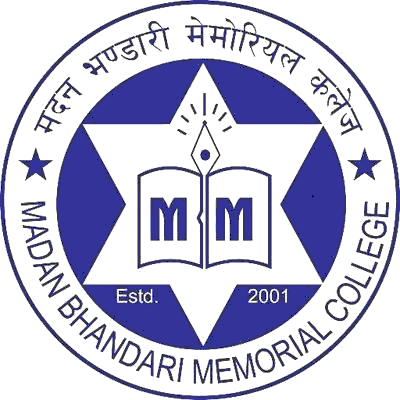Overview
The Central Department of Geography (CDG), situated within the picturesque University Campus in Kirtipur, stands as a prominent institution under Tribhuvan University. With its establishment dating back to 1959, the CDG has upheld its reputation as a leading department, actively contributing to higher education and research in Nepal.
Offering Comprehensive Programs in Geography
The CDG proudly offers a highly esteemed Master's Program in Geography, welcoming applicants from diverse academic backgrounds. This inclusive approach allows students from various disciplines to delve into the fascinating field of geography and enrich their understanding of the world.
Nurturing Doctoral Research in Geography
While the PhD Program in Geography is managed by the Dean's Office of the Faculty of Humanities & Social Sciences, Tribhuvan University, the CDG plays a vital role in supporting doctoral researchers. Ph.D. scholars frequently engage with the department, making use of the extensive resources available, such as the departmental library and laboratory. Additionally, they benefit from the guidance of their supervisors, who are esteemed faculty members of the CDG.
Pioneering Geographic Information System and Remote Sensing Education
Recognized as a trailblazer in the field, the CDG takes pride in being the first department in Nepal to offer academic courses on Geographic Information System (GIS) and Remote Sensing (RS). By imparting practical knowledge and skills in these cutting-edge technologies, the department equips students with the tools to analyze spatial data effectively and make valuable contributions in various domains.
Strengthening Collaboration through Soil and Water Analysis
The CDG recently established a state-of-the-art soil and water analysis laboratory, fostering closer ties with other central departments housed within the Institute of Sciences and Technology. This collaborative effort enhances interdisciplinary research opportunities and enables the CDG to contribute significantly to understanding and addressing pressing environmental challenges.
Dedicated and Accomplished Faculty Members
The CDG prides itself on its team of highly qualified and experienced faculty members. These dedicated educators bring a wealth of expertise to the department, ensuring a stimulating learning environment for students and fostering a culture of research excellence. The faculty members are actively involved in scholarly pursuits, making valuable contributions to the field of geography through their research and publications.
Facilities at the Central Department of Geography
The Central Department of Geography prioritizes providing students and faculty with state-of-the-art facilities that support their academic and research endeavors. These facilities include:
1. Lecture Rooms, Seminars, and Workshops: The department boasts well-equipped rooms dedicated to lectures, seminars, and workshops. These spaces provide a conducive environment for interactive learning and academic discussions.
2. GIS/RS Laboratory: The department houses specialized laboratory rooms equipped with Geographic Information System (GIS) and Remote Sensing (RS) facilities. These facilities enable students to gain hands-on experience in utilizing cutting-edge technology for spatial analysis and data interpretation.
3. Soil and Water Analysis Laboratory: The department has a dedicated laboratory equipped with modest facilities for soil and water analysis. This facility enhances research capabilities and fosters collaboration with other departments within the Institute of Sciences and Technology.
4. Unmanned Aerial Vehicle (UAV): The department possesses an Unmanned Aerial Vehicle (UAV) device along with image processing software. This technology enables the collection of aerial data and supports advanced research in fields such as remote sensing and geospatial analysis.
5. Department Library: The department's library houses a comprehensive collection of course books, reference materials, research project reports, students' theses, major national newspapers, and provides internet facilities for students. It serves as a valuable resource for academic studies and research.
6. Research Cell: The research cell within the department is equipped with computers, internet facilities, reference books, and journals. This dedicated space supports faculty and students in conducting research, data analysis, and literature review.
7. Survey and Cartographic Facilities: The department provides surveying instruments, including Theodolite, Prismatic Compass, Clinometer, Dumpy Level, and Telescopic Alidade, along with drawing instruments. These resources enable students to develop practical skills in surveying and cartography.
8. Internet and Website: All faculty administrative rooms, the GIS/RS lab, and the library are equipped with internet connectivity. Additionally, the department maintains its own website, ensuring easy access to information for students, faculty, and the wider academic community.
The Central Department of Geography prioritizes the provision of comprehensive facilities that cater to the diverse needs of students and faculty. From cutting-edge technology in GIS/RS and UAV to a well-stocked library and research cell, these facilities contribute to a vibrant and dynamic learning environment, fostering academic excellence and facilitating groundbreaking research in the field of geography.
Completed Research Works:
|
Climate Change Adaptation and Disaster Risk Management Studies
Web-Based Natural Dam-Burst Flood Hazard Assessment and Forecasting System (WeACT) Project
Long-term Research Project (LTRP) on Ecological Based Adaptation
Situation of Springs, Ground Water Spring Potentiality and Gender Roles in Water Management: A Study of Melamchi Area
Review and Analysis of Existing Policies, Programs, and Institutions on Hazard Risk Reduction in the Koshi Basin
Climate Change Adaptation through Water Resource Management: Comparative Study between the Yellow and the Koshi River Basins
Vulnerability Assessment of Meteorological Flash Floods in Poiqu/Bhotekoshi/Sunkoshi Watershed
Change in River Morphology due to Inter-basin Transfer of River Flow and its Consequences: Comparative Study of Kulekhani and Rapti Basin
Study on Rock Glacier Monitoring - Technology Transfer between the Eastern Alps and Eastern Himalayas: Climate Change Impacts, Tourism, Nomadic Communities in the Langtang Valley
Mapping Environmental Sensitive Rivers and Basins in Nepal and Developing Methodology and Scoring Techniques to Assess the Sensitivity
Identification of Ecologically Sensitive Zones of Nepal
Study of Socio-Economic and Environmental Impact of Land Erosion and Landslides occurring in Nepal's Mid and Far Western Development Regions on the Lower Area Habitat
Field Assessment of July Debris Flow Disaster at Larcha in the Upper Bhote Koshi, Sindhupalchok District
Hazard Mapping and Risk Assessment of Some Selected VDCs of Kabhre and Chitwan Districts
Role of Extreme Weather Events, Mass Movements and Land use Changes in Increasing Natural Hazards
Local Level Environment Planning in Arghakhanchi District
Integrated Land Use and Resource Utilization in Humid Tropical and Sub-Tropical Areas of Nepal Phase II
Integrated Land Use and Resource Utilization in Humid Tropical and Sub-Tropical Areas of Nepal Phase I
Socio-Physical Vulnerability and Resistance in Bagmati Watershed of Kathmandu Valley: Mapping Water Poverty and Ground Water Potential
Baseline Survey of Nepal Migrants and Remittance
Environmental Health Project
Study of Human Ecology in the Arun Valley
Health Hazards of Kathmandu City
Socio-Economic Survey of Langtang Region
Environmental Impact of Socio-Economic Activities in Langtang Valley
Population and Environment in Nepal
|
Courses Offered:
-
MA in Geography (MA Geography): This program is a postgraduate degree that provides advanced knowledge and skills in the field of geography. It covers various aspects of physical geography, human geography, environmental studies, and geospatial analysis. The program typically includes coursework, research, and a thesis.
-
PhD in Geography: This program is a doctoral-level degree that allows students to engage in advanced research and make significant contributions to the field of geography. Students pursuing a PhD in Geography at Tribhuvan University conduct original research, write a dissertation, and defend their research findings. The program emphasizes in-depth study and specialization in a specific area of geography.
These programs aim to develop competent geographers who can contribute to academia, research institutions, government agencies, and various other sectors that require expertise in geography.
Admission Guidelines:
|
Admission guidelines for MA Geography. Based on the information you provided, here is a summary: Eligibility:
Entrance Examination:
Medium of Instruction:
Duration of the Program:
Hours of Instruction and Credit Calculation:
Evaluation:
Grading System:
|
Contact Central Department of Geography, TU's administrative office for detailed information on the course, admissions, location, fees, scholarships, facilities, counseling, or eligibility.

















